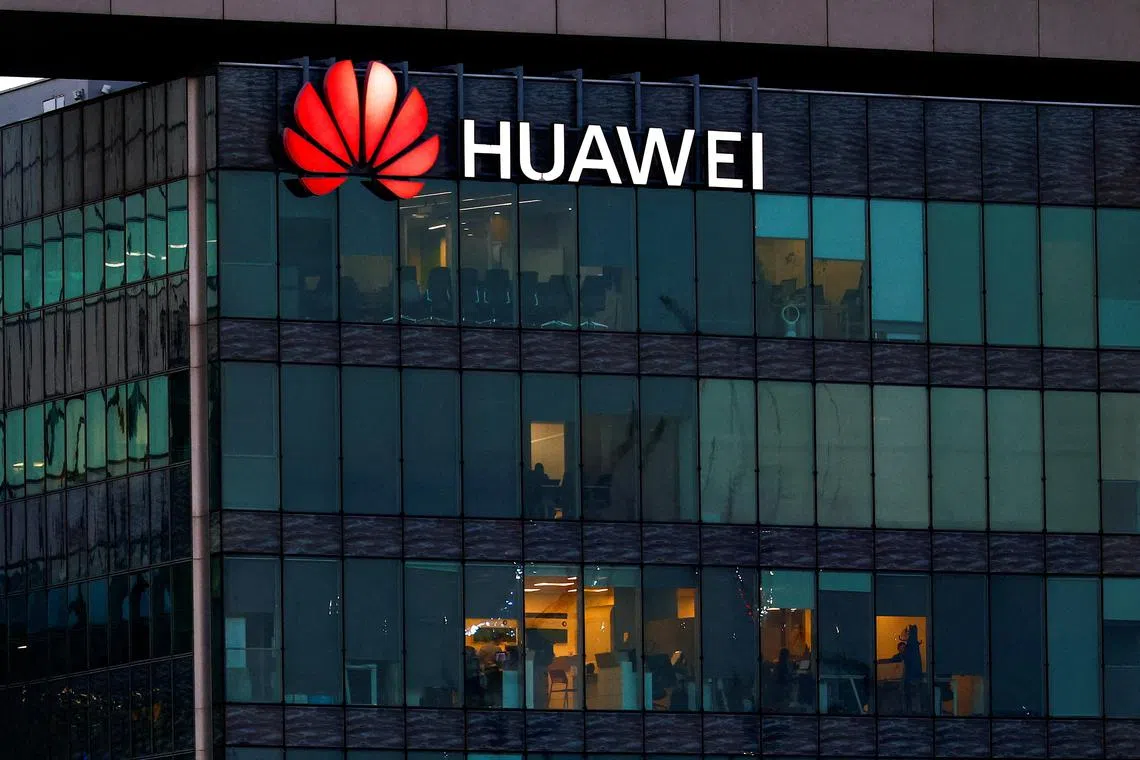Huawei founder waves off US chip curbs while trade talks proceed
Sign up now: Get ST's newsletters delivered to your inbox

Huawei Technologies founder Ren Zhengfei dismissed the impact of US export restrictions on China in a front-page People’s Daily article.
PHOTO: REUTERS
BEIJING – Huawei Technologies founder and chief executive Ren Zhengfei dismissed the impact of US export restrictions on China in a front-page People’s Daily article, wading into one of the key topics dogging Washington-Beijing trade negotiations.
Mr Ren, one of the country’s most recognisable business figures, told the Communist Party’s official newspaper he was not worried about Washington’s efforts to cut off the flow of US technology to China’s chip sector. Domestic companies could resort to means such as chip packaging or stacking to achieve results similar to that from advanced semiconductor technology.
Mr Ren also expressed confidence in the interview that China can make breakthroughs in artificial intelligence (AI) and software, particularly in an increasingly open-source environment. The US has put restrictions on chip design programs for Chinese firms, though Washington could also remove those pending the outcome of talks.
The prominently placed article appears timed to coincide with a second day of sensitive negotiations between the US and China, which are seeking to ease tensions over shipments of technology and rare earth elements.
US Commerce Secretary Howard Lutnick’s presence at the talks underscores the importance that export controls are playing in these discussions. He has said China is not capable of producing high volumes of sophisticated semiconductors, a sign American export controls are limiting its progress.
Semiconductor packaging or stacking refers to the techniques of bundling chips together to make them more powerful – Huawei has been relying on this method to make its most powerful AI chips at Semiconductor Manufacturing International Corp, aiming to develop silicon as sophisticated as what Nvidia offers.
In May, Nvidia CEO Jensen Huang said Chinese AI rivals are filling the void left by the departure of US companies from that market, and their technology is becoming more powerful.
But Mr Ren also acknowledged Huawei’s current limits in his comments.
“The US has made exaggerations about Huawei’s achievements. Huawei is not that good yet,” Mr Ren said. “We are still lagging one generation behind the US in terms of output from a single chip, though we can still get the results we want by compensating with cluster-based computing.” Cluster-based computing is a reference to running AI training on a group of chips.
Huawei has in past years evolved from a telecommunications gear and smartphone maker into one of China’s national technology champions, making advances in semiconductors, electric vehicles (EVs) and AI. It is also one of Washington’s biggest targets, given persistent accusations of its ties to Beijing. The company has repeatedly stressed it is an employee-run company.
Mr Ren, a former People’s Liberation Army officer, has emerged as one of the tech sector’s most prominent voices since the first Trump administration added the company to the so-called Entity List.
That move significantly curtailed Huawei’s access to US technologies, initially walloped the business, and sped its exit from several major markets. But Huawei has since regained market share in smartphones, developed a more advanced process than the US thought possible, and is now making inroads into the AI and EV software markets. BLOOMBERG


